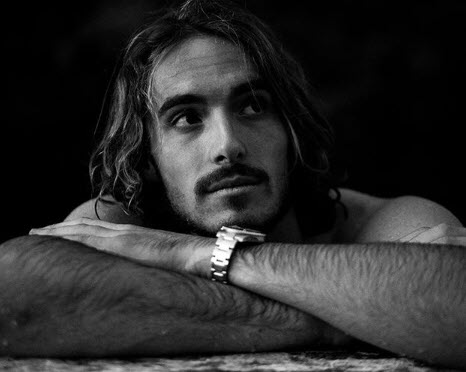Stefanos Tsitsipas‘ choice is simple. He can be the Phoenix. Or he can become Sisyphus.
If the gods of Olympus forced us to read only one tennis website out of all those available, reading CLAY would be a good choice these days: for Sasa Ozmo’s interview with Goran Ivanisevic, which triggered the end of Tsitsipas’ fragile player-coach relationship with Ivanisevic. And because of Vicky Georgatou’s subsequent interview with Tsitsipas, in which it became clear that the Greek loves tennis and does not like ‘dictators’.
With his return to the arms of Apostolos Tsitsipas, his father, the Greek is making a key decision in his career. The Phoenix, a mythical creature in several civilisations, including ancient Greece, symbolises resilience, rebirth from the ashes and triumph. Sisyphus, on the other hand, was betrayed time and time again by the same rock just as he was about to reach his goal, success, after having carried it almost to the top of the mountain. A monotonous and eternal repetition of failure.
Beyond what Ivanisevic says – ‘his biggest problem is his backhand, especially the slice, technically he needs to adjust his grip a little’ – anyone who sees Tsitsipas play understands that there is great talent and a figure with a lot of potential. He has tennis, elegance, charisma and drama. And although he is far from having achieved all he could have, Tsitsipas is the best tennis player of all time in his country, former world number three and finalist in two Grand Slams.
Ivanisevic’s relationship with Tsitsipas was doomed to fail, basically because the player himself was not convinced: it is no coincidence that it took him months to finalise the long-announced relationship. Nor is it a coincidence that it lasted so little.
Tsitsipas didn’t want to hear what Ivanisevic had to say.
“There’s no magic wand. But off the court, you have to take responsibility and make decisions, because everything is reflected on the court. You can’t play a Slam, or any tournament, if you’re not 100% focused. You have to think about your drive and your backhand, not 77 other things that have nothing to do with tennis.‘
And in case it wasn’t clear to the Greek, the 2001 Wimbledon champion went even further in his interview with Sasa Ozmo: ’He has to start resolving these issues as soon as possible. When he does, he’ll be where he deserves to be. If he doesn’t — and I’ve said this six times — no one will be able to help him.‘
Will Apostolos, whom Tsitsipas fired less than a year ago as his coach, saying terrible things, help him?
’I had to apologise to him because I was clearly wrong,” Tsitsipas said in his interview with Vicky Georgatou. ‘Now we’ve found a new way to communicate and talk to each other so that this doesn’t happen again and the tension doesn’t build up. I love my father with all my heart and what he has done over the years is truly extraordinary.’
And after the brief experience with Ivanisevic, what do you say?
‘It’s about having people with a common vision, who know how hard we work and what we want to achieve, but who also maintain a pleasant atmosphere at all times. It’s very difficult to be surrounded by dictators and people who speak negatively and don’t make you feel like family.’
Clear as day. But Ivanisevic disagrees with the ‘dictator’ comment and stands by every word he said.
‘He got carried away, I didn’t insult him… I said all that to him, I didn’t say it behind his back. Now it seems you can’t say anything anymore. I said it sincerely, to provoke a reaction. That’s how this generation is. Unfortunately, that’s the way it is, everyone can see it,’ Ivanisevic told Croatian television HRT.
‘He feels it too, and he knows it. If you’re not mentally, physically and emotionally prepared, especially mentally, to play for hours with the best, you have no chance of playing tennis. He wasn’t mentally prepared to play at Wimbledon, I hope he finds his way. I wish him all the best, we know the results he’s had, he hasn’t forgotten how to play tennis.’
Away from Spain’s Paula Badosa, his partner in recent years, and unable to cope with the harsh honesty of a coach like Ivanisevic, Tsitsipas returns at the age of 26 to where it all began, back into the arms of Apostolos. Phoenix or Sisyphus, only time will tell.
